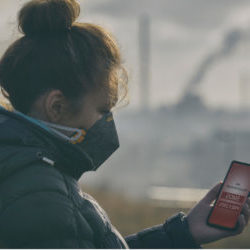Published: March 2021 Ed. Of European Journal of Environment and Public Health
The objective of this study was to compare the cases of COVID-19 deaths and cases in the United States and Europe. The area selected in the United States was parishes (counties) in Louisiana along the Mississippi River which is globally known as “Cancer Alley.” These parishes have been investigated in the past due to high levels of air pollution. The relationship of air pollution and COVID-19 was evaluated. The racial distribution of deaths, and mortality and case-fatality rates were determined in the 11 Cancer Alley parishes. Results indicated that infection, mortality, and case-fatality rates were higher in the 11 Cancer Alley parishes where chronic exposure to air pollution has occurred. The COVID-19 cases and deaths were higher in the 11 Cancer Alley parishes when compared to the remainder of the state. When stratified by race, infection, mortality, and case-fatality rates were higher among Blacks in the 11 Cancer Alley parishes. The risk of infection and mortality was higher in the 11 Cancer Alley parishes, as well as among Blacks in these parishes. Our research adds to others that document the effects of air pollution on COVID-19, as well as the historical patterns of health disparities and environmental injustices in Cancer Alley. We offer a set of progressive policy recommendations as a pathway to actions for sustainable change, which can inform risk mitigating strategies worldwide.
This research publication was published with the title, “Air Pollution and COVID-19: A Comparison of Europe and the United States”, in the March 2021 Ed. Of European Journal of Environment and Public Health. It is authored in collaboration by Peter J. Fos, Ph.D., D.D.S., M.P.H., Professor of Health Sciences and Research Professor, Minority Health and Health Disparities Research Center, Dillard University, Peggy A. Honoré, D.H.A, Professor, Health Policy & Systems Management Program, LSU Health Sciences Center New Orleans, School of Public Health & School of Medicine, and Lieutenant General Russel L. Honore, Louisiana Green ARMY, United States Army.
Click here to read the full article




